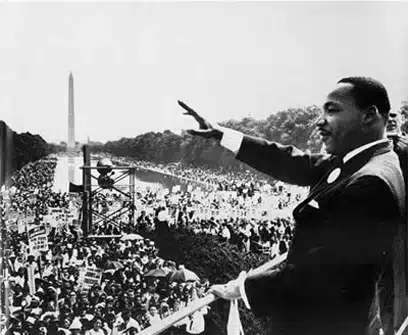It is your moment to shine…..or not. The Oscars always gets a lot of press but this year, the main story revolves around HOW a blunder could have been made with two superstar presenters accidentally announcing the wrong Best Picture award.
From a professional position, we take a look at the stress that must have been mounting and how to handle a mistake of that magnitude. It does not have to be a global stage to be a large and public mistake and it’s how we deal with it that makes all the difference.
Typical Presentation Mistakes & Pitfalls
Remembering points, trying to use body language, it can all get on top of you, especially if you’re an inexperienced presenter or are giving a complicated presentation. Standing up and delivering a presentation can be frightening for some of us. It is one of the most common social fears but when you prepare, that fear can diminish and even disappear entirely.
Don’t worry. Everyone makes mistakes when giving presentations, even the best. It’s how you handle it that counts.
Whether you’ve said the wrong word, lost your train of thought, or announced the wrong details (such as best picture winner) the rules are the same:
BREATHE!
Take a deep breath it Oxygenates your body and physically helps to calm you down. That moment of silence and centering yourself allows you to take stock of your thoughts and not rush into the next part of the presentation or explanation of the error. It allows you to look thoughtful and considered and when you are calm, that reflects on the audiences reaction to you.
Clear Explanation Of Any Mistake To Control The Presentation
This did not happen as the Oscars, you can clearly see in the clip below that the mistake was found quickly but LOTS of confusion is apparent as speeches continue.
No single person took control of the issue so it depended into chaos for a few minutes. The speeches were interrupted and clearly the audience would have been baffled as well.
Ownership by someone official at this stage would have been a logical step. Remembering to breathe (previous step). Yes, the audience will look at you, but taking some time and resisting the urge to start talking before gathering your thoughts means you can control the situation better.
Correcting your mistakes
Own the mistake.
By taking responsibility for whatever the mistake is you will appear confident. If its a simple error like stumbling over your words, just correct it, we are all human and its a forgivable mistake. If like in the case of the La La Land error its an informational mistake then the aim here should always be to correct it. ‘I should say x instead of y,’ or a correction along those lines is effective and isn’t apologising.
Warren Beattys’ body language when reading the card seemed to indicate he thought there was a possible mistake, you can clearly see him looking to the stage left. We can assume that it said Best Actress on the card and he knew they were announcing best picture. Was it his fault, should he have halted the presentation and asked for clarification? Our best guess is, the show is live and something like this in terms of mistakes has not happened before so it is likely he trusted the result if not the exact information on the card.
Unfortunately at the Oscars, there was a moment of clear blame laid at the feet of both Faye Dunaway and Warren Beatty as the presenters. Yet they were not afforded the opportunity to correct or explain the error. Though after the mistake had been rectified, Warren Beatty did explain what had happened with the envelope mix up after the initial confusion prior to leaving the stage.
“I opened the envelope and it said, ‘Emma Stone, La La Land.’ That’s why I took such a long look at Faye and at you [the audience]. I wasn’t trying to be funny,” Beatty explained to the audience.
Talk To The Audience.
It’s okay to talk to the audience, especially if you’ve forgotten what you just said or if you’ve made a mistake. Asking the audience what you were saying, or the name of something you’ve forgotten, can often seem planned and inclusive. It’s often a good idea to talk to the audience during your presentation anyway, and doing so can make this trick seamless.
With the Oscars blunder, the audience was actually ignored for almost a minute as those on stage were delivered the news of the mistake and confusion took hold.
At this stage, it would have been advisable for someone within the Academy to control the situation. What actually happened was initially even more confusing as the news on the stage was being absorbed by La La Land actors and production team it was the La La Land producer Fred Berger was the first to break the news live, literally in the middle of his acceptance speech, Berger remarked, “We lost by the way but you know.”
The flippancy of the remark came as he was also coming to terms with the news that the award had been incorrectly given, at this stage there was still mass confusion on stage and no doubt in the audience until La La Land producer Jordan Horowitz stepped to the microphone and said, “There’s been a mistake. Moonlight won.” It’s not a joke,” he said. “This is not a joke, come up here.” Reinforced with him physically showing the card from within the correct envelope to the stunned audience.
Recovering From Presentation Mistakes
It may feel like a mistake is catastrophic but, unlike the Oscars, rarely does the news move outside of the place where the presentation occurs. Even with a presentation on the Academy Awards scale, this will be old news tomorrow. No matter what your mistake, or how you handle it, remain positive and don’t get hung up on it. Mistakes are made by everyone, and are part of becoming a better public speaker.





